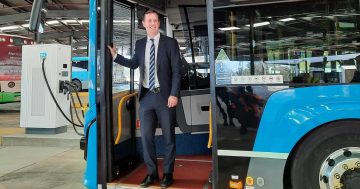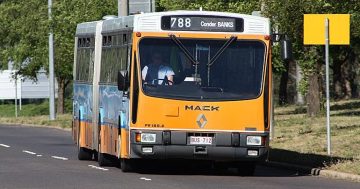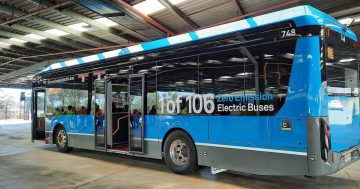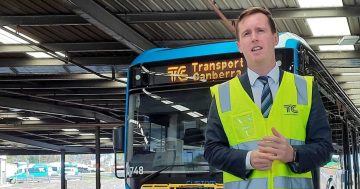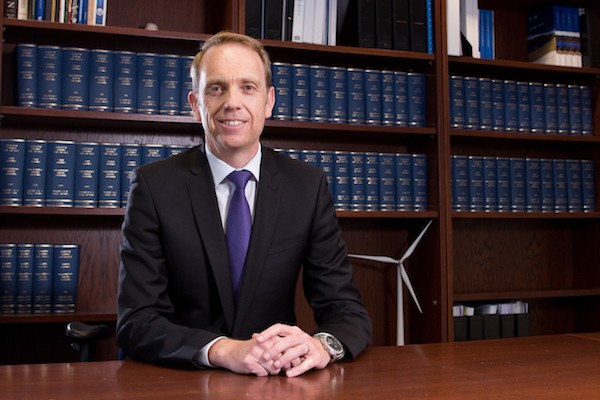
Simon Corbell is now Chief Adviser for Energy Estate, an advisory business providing strategic consulting, transaction advisory and project development services to the global energy sector. Photo: File.
Former ACT Minister for Climate Change and Transport Simon Corbell has been named alongside high-profile transport academics on the ACT Government’s new steering committee to oversee the development of Transport Canberra’s zero-emissions bus transition plan.
The Territory is committed to converting the current fleet of diesel and CNG buses to a zero-emission bus fleet by 2040.
Mr Corbell will join Dr Lachlan Blackhall from the Australian National University and Professor Peter Newman from Curtin University, as well as John Stewart from the Australian Manufacturing Workers Union who will represent diesel mechanics.
Transport Minister Chris Steel made the announcement at the Bus Industry Confederation National Conference at the National Convention Centre, where he also announced the ACT had acquired 40 new low-emission diesel buses for $21 million that will go into service this month.
Mr Corbell is now Chief Adviser for Energy Estate, an advisory business providing strategic consulting, transaction advisory and project development services to the global energy sector.
Mr Steel said the US non-profit organisation, the Center for Transportation and Environment, which has been working on similar transition plans in there, will also be involved.
He said the plan would enable the Territory to move from its current fleet of diesel and CNG buses to a zero-emission bus fleet by 2040.
The Steering Committee, which will hold its first meeting before the end of the year, would provide strategic direction and leadership to Transport Canberra in developing the transition plan.
“This will enable our Government to make informed decisions on how to transition our bus fleet to zero-emissions – including the technology, timing, risks, costs, benefits, financing and funding options,” Mr Steel said.
The plan, to be finalised by the middle of next year, would consider infrastructure, fleet, policy, service principles and workforce skills.
Mr Steel said that the 40 new Scania/Bustech Euro VI buses would play a crucial role in modernising the existing fleet which has 74 buses over 25 years of age, and maintain services during the transition period.
“As well as lowering harmful emissions and being more reliable, the new buses will be air-conditioned and, importantly, meet disability access requirements. It means we will achieve the required legislated target of a 100 per cent accessible bus fleet well before 31 December 2022,” he said.
The Government would also be spending $44.51 million on a further 84 buses to replace ageing vehicles and grow the fleet over the next four years, including the first procurement of zero-emissions buses.
Route buses generally have a life of about 15 years.
Last week a 12-month trial began of a new electric bus, the Chinese Yutong E12, that Mr Steel said would provide the Government with valuable operational experience.













